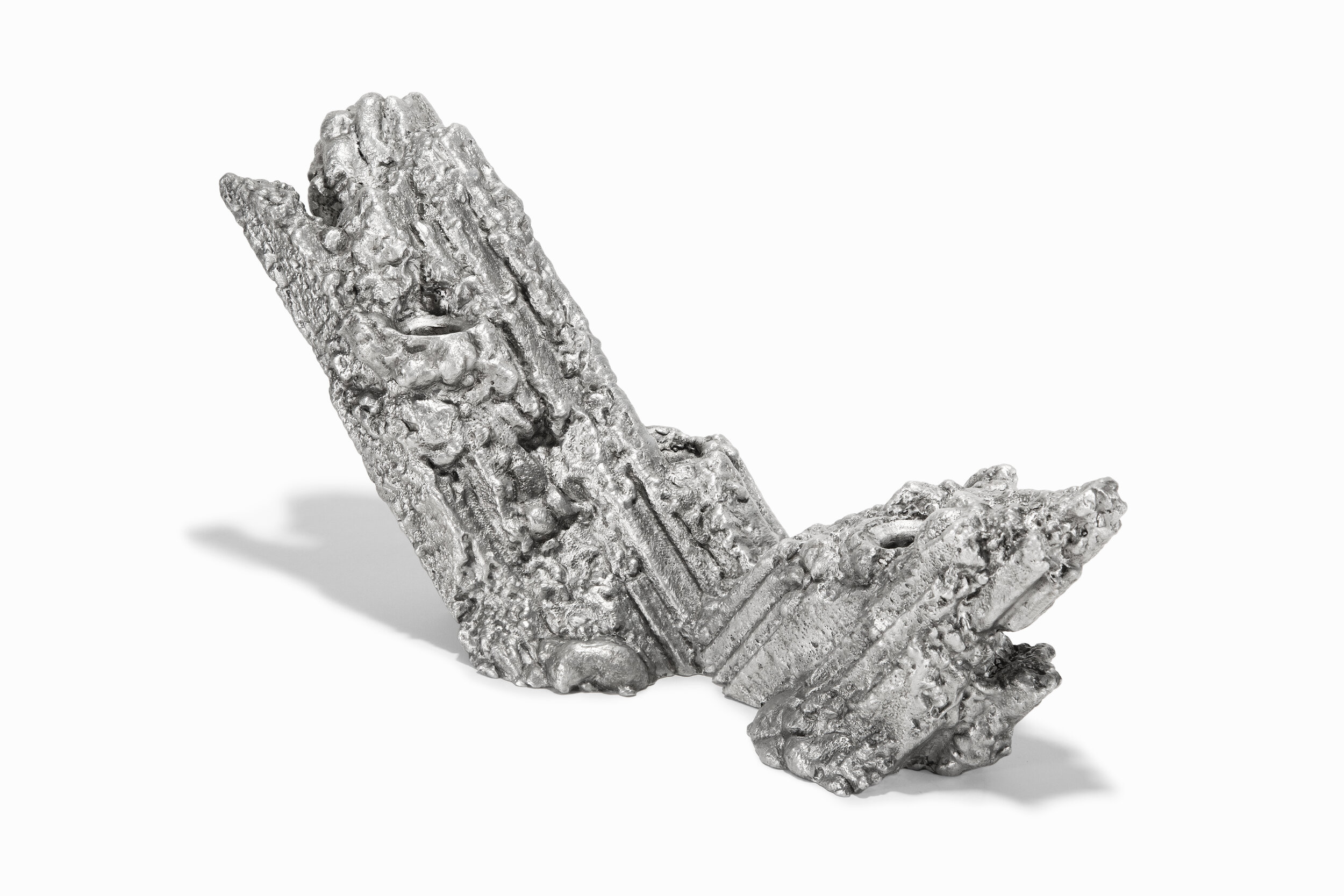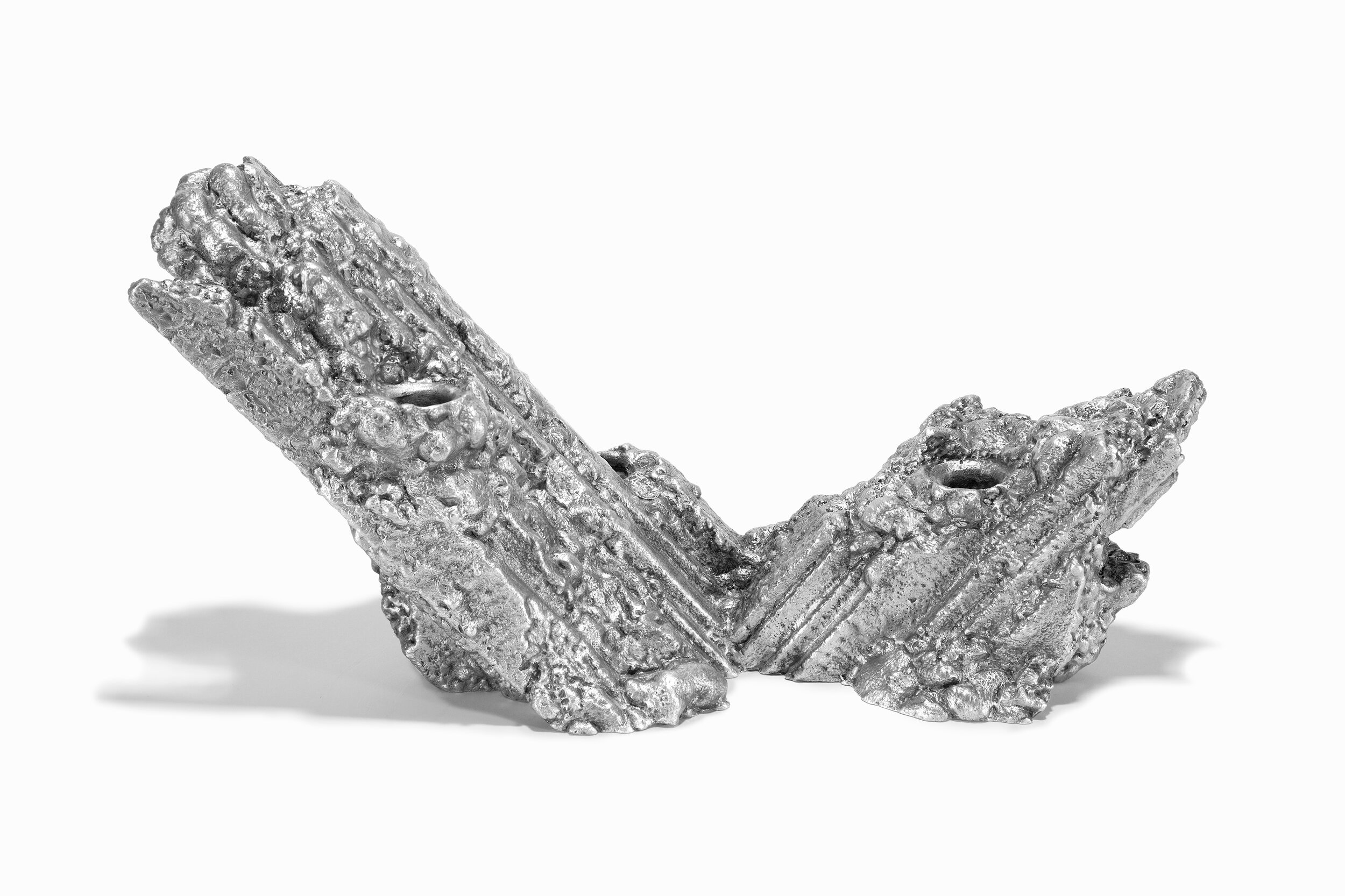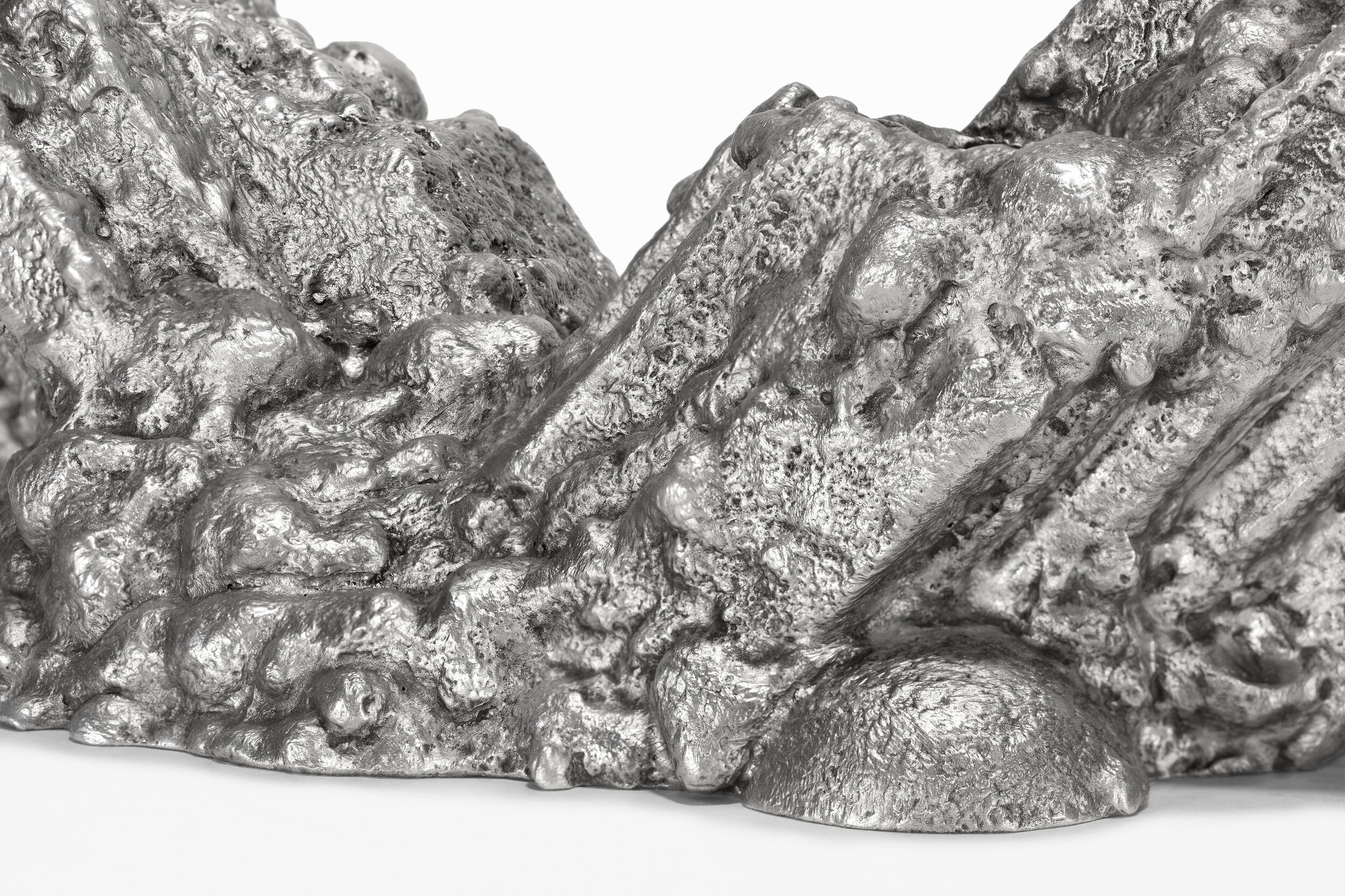Chris Schanck — Twin Stone Candelabras
Chris Schanck — Twin Stone Candelabras
Cast Aluminum
17L x 7W x 9H inches
Edition of 10
PLEASE NOTE
Produced to benefit the Cranbrook Academy of Art and Cranbrook Art Museum
The buyer accepts all terms of sale and agrees that the edition will not be resold for a minimum of one year from the purchase date.
Copyright of the artwork is non-transferable and remains the property of the artist.
Details
Detroit-based artist and designer Chris Schanck received his MFA from Cranbrook Academy of Art in 2011. Upon his graduation from the Academy, Schanck founded a burgeoning studio employing over a dozen artists, students and Craftsmen. Schanck embraces contradiction in his work, finding a comfortable place between the distinctions of dilapidation and assemblage, individual and collective, industrial and handcraft, romanticism and cynicism. His efforts deviate from the mass-produced, instead reviving mundane materials by transforming them into unique objects of uncommon luxury.
Schanck is perhaps best known for his “Alufoil” series, in which industrial and discarded materials are sculpted, covered in aluminum foil and then sealed with resin. Based on this signature technique, Schanck has created Twin Stone Candelabras, a functional sculpture that investigates the relationship between natural and constructed environments. A new aesthetic language emerges from his source material, which melds Brutalism and Art Deco architecture, fantasy and science fiction narratives, early human dwellings, and the designer’s interpreted neighborhood structures and visual culture. Schanck’s process transforms and elevates the inexpensive material into an otherworldly luxury object that appears as though it had been chiseled from a brick of metal.
“It’s inspiring to see all these disparate elements that are tied together in these intuitive but elaborate ways that first look like chaos and don't look intentional. It took me time to understand how much purpose was behind all of it. That I was in this landscape that was so carefully constructed, and nothing was going to waste, and everything was being reanimated in a different way. I became inspired to look at my relationship between myself and the material in my landscape. What we have is what we have. I wanted to know where I lived and the place I lived in. I think I understand the world best through materials and processes.” — Chris Schanck




